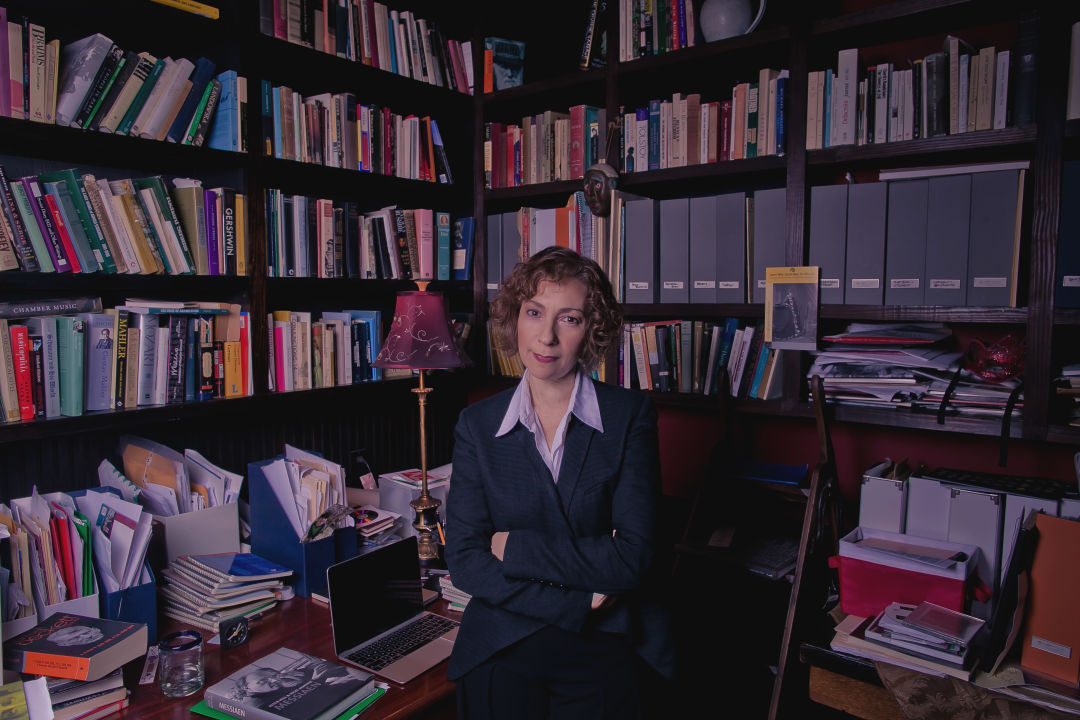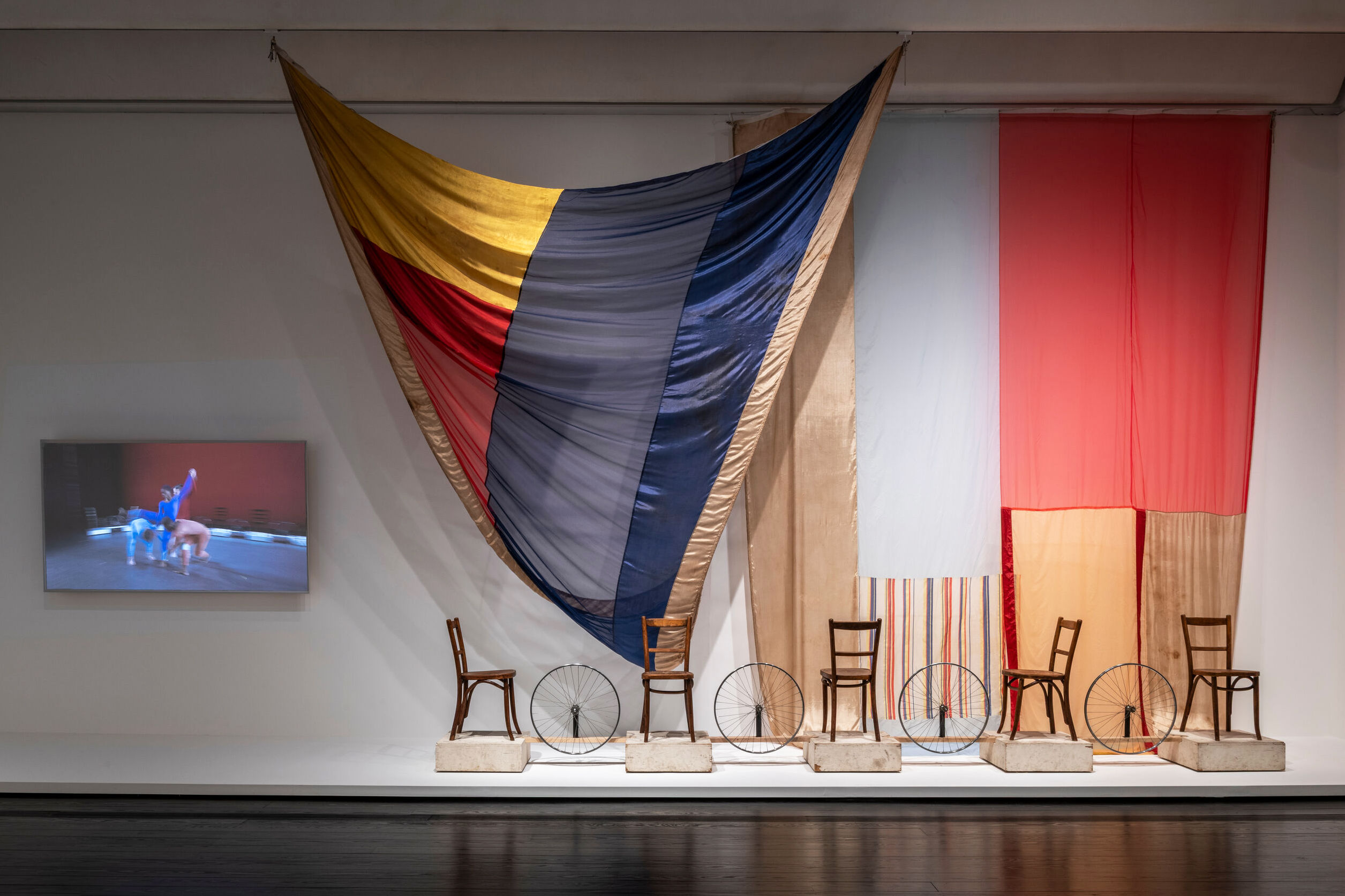Creative Combinations: Sarah Rothenberg Looks Back at 25 Years with Da Camera

Sarah Rothenberg marks 25 years as artistic director of Da Camera.
Image: Morris Malakoff
On a tour stop in Houston with the Da Capo Chamber Players in 1994, Sarah Rothenberg decided to change her plane ticket and spend an extra day exploring the Menil Collection's current exhibit.
“I was getting tenure at Bard, I was in contract to buy a house, I was on sabbatical, (and) I came down to Houston,” Rothenberg remembers. “Lo and behold, Sergiu Luca, the founder of Da Camera, had had a kind of stormy blow-up with the board, and actually, almost immediately, the board president at the time…took me out to dinner."
After spending the day at the Menil, Rothenberg was full of ideas and asked whether anyone had been doing any programming where the exhibits, located just bungalows away from the Da Camera office, were the inspiration for the concerts.
“That was not something that Da Camera had been doing, so one thing led to another rather quickly,” Rothenberg tells us, remembering her decision to take up the post of Da Camera’s Artistic Director in 1994. “As much as I loved Bard, it had become very clear that the model we had established would not change…I was interested in experimenting with ways of reaching audiences and also with really kind of exploding what the concert format could be.”
Within a year, Rothenberg established Da Camera’s Jazz series with a concert presented by titans in the genre like singer Abbey Lincoln and trumpeter Roy Hargrove, as well as the Music and Literary Imagination series, which opened with the premiere of “Marcel Proust’s Paris.”
Combining classical music with a beautiful but massive, unwieldy seven-volume work—Proust’s longest sentence goes on for a wild 944 words—does not seem like something that would make it more palatable to a general public. But when we pressed Rothenberg about combining two highly complex works in the name of broad appeal, she pushed back, saying she’s had many audience members say it made both sides more approachable, inspiring some to read Swann’s Way, the first volume, with renewed appreciation—particularly after “A Proust Sonata,” which premiered in 2016.
“The idea of publicly bringing these things together was something that really took me a while to dare to do, and the very first Proust program really was that—I mean, I was very shy about doing it at first,” Rothenberg says.
While the premiere got raves in New York, Houston’s critics were less enthusiastic, and Rothenberg says it was thanks to the support of a passionate and supportive board that Da Camera continued to create and pursue unlikely artistic intersections.
The idea of interdisciplinary programming today is so common it’s almost a cliché—but that wasn’t true even a decade ago. As a pianist, Rothenberg’s career launched in the early 1980s, when she performed the American premieres of music by Russian Constructivism composers at The Kitchen in New York City—a program that had started out focused around Vsevolod Meyerhold’s theater from that period.
“I was asked to research the music that would be appropriate to the theater—back in the ‘80s I would have poo-poo’d this,” Rothenberg says, referring to the uncommon cross-media nature of the task. But in researching, she found connection after connection between art forms, like the fact that Shostakovich had written music for Meyerhold’s theater while living with the director in the late 1920s.
“This [theater] festival turned into a festival of theater and music, and it was actually covered by the New York Times as a musical event,” Rothenberg says.
In the 25 years Rothenberg has been Da Camera's artistic director, this has taken the form of some really unexpected connections between classical music and dance, film, painting, literature—and not always in ways you’d notice. For instance, someone listening to Richard Goode and Rothenberg play Schubert’s four-hand piano work “Fantasy in F Minor” at this Saturday’s season opener might not pick up on the background conversations they had about poetry and Picasso during rehearsals.
Rothenberg says she never sought out interdisciplinary work, she just started noticing ways that other media—and different spaces that weren’t formal concert halls—could bring people into music. And in an era when the classical music world is panicking about losing its audience, that’s vital to where Rothenberg will take Da Camera in the coming years.
“If we’re going to measure things by mega-movie attendance, it’s a losing battle. I think it’s really, really important in our culture to keep alternative forms of art alive and not get swallowed up by commercial culture, whose goal is to make money for people,” Rothenberg says. “My goal is not the largest audience in the world…My goal is authentic art that really reaches people in a way that nothing else can, and I think there are many more people who could be potentially moved by this music than are showing up in the concert hall.”
Da Camera season opener, "Richard Goode, piano with Sarah Rothenberg," on Saturday, Sept. 29. Tickets from $42.50. Wortham Theater, 501 Texas Ave. 713-524-5050. More info and tickets at dacamera.com.




